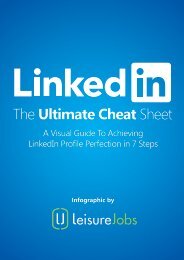ARCHITECTURE
artofinequality_150917_web
artofinequality_150917_web
You also want an ePaper? Increase the reach of your titles
YUMPU automatically turns print PDFs into web optimized ePapers that Google loves.
1996<br />
Stephen E. Roulac, Roulac Global and University of<br />
Ulster, Northern Ireland: “By the 1980s real estate<br />
had overcome its earlier second-class status to assume<br />
an important, primary role in society and the<br />
political economy. Real estate classes of universities<br />
often attracted record enrollments. Real estate<br />
was a primary career choice for many and a favored<br />
investment for pensions funds. Real estate securitization<br />
represented both a significant individual<br />
investment vehicle and also a major contributor<br />
to the profits of Wall Street investment firms. . . .<br />
Real estate in the early 1980s was robust, dynamic,<br />
significant. . . . Over the last decade or so . . . real<br />
estate has sunk into an apparent malaise. . . . Declining<br />
enrollments in university real estate courses<br />
are stark testimony to real estate’s less than favored<br />
status.” 31<br />
2002<br />
tions exist in the United States “dedicated to virtually<br />
every area of the profession and all property types.” 35<br />
real estate education<br />
Stephen E. Roulac, Roulac Global and University of<br />
Ulster: “The evolution of the property discipline embraces<br />
multiple perspectives of licensing, professional<br />
designations, university-based education, adult continuing<br />
education, applied ‘how to’ courses, theoretical<br />
research, applied research, multi-faceted application of<br />
theory and learning as well as multiple public interest<br />
concerns. The contemporary orientation of the discipline<br />
is reflected in the different paradigms employed<br />
for considering property, including economics, finance,<br />
geography, engineering, highest and best use, city planning,<br />
brokerage, legal, corporate decisions, the consumer<br />
transaction, and multi-disciplinary approach.” 36<br />
“Unfortunately, the real estate discipline currently<br />
lacks coherence and consensus about what the essence<br />
of real estate is and what the operative paradigms<br />
are for comprehending and making order of the<br />
discipline.” 32<br />
2002<br />
developments in the field<br />
Approximately 200 universities offer real estate<br />
classes “usually as an area of specialization in the<br />
finance department of a College of Business,” or in<br />
planning or urban economics. 37<br />
1996<br />
Roy T. Black, Neil G. Carn, Julian Diaz III, and Joseph<br />
S. Rabianski, all of Georgia State University:<br />
“[The] field of real property exists today because an<br />
academic group has chosen to study the significant<br />
amount of human energy expended in producing and<br />
extending the artificial environment. The focus on<br />
human activity is fateful, for it places real property<br />
among the applied disciplines and dictates its purpose.<br />
. . . A field does not need a generally accepted, unifying<br />
theory to be an academic discipline.” 33<br />
2004<br />
2005<br />
2005<br />
Clemson University establishes the MRED program<br />
in the College of Architecture, Arts, and Humanities.<br />
Woodbury University founds its Masters of Science<br />
in Architecture (MSArch) in Real Estate Development<br />
in the School of Architecture.<br />
Georgetown University establishes a Masters of Professional<br />
Studies in Real Estate in its School of Continuing<br />
Studies.<br />
2002<br />
2002<br />
James R. Webb, Cleveland State University, and Halbert<br />
C. Smith, University of Florida: “Virtually all<br />
real estate research is done at universities. Some professional<br />
organizations claim to do some research, but<br />
it is mostly just data gathering and no statistical tests<br />
or hypotheses tested. A very few professional organizations<br />
fund academic research in their area.” 34<br />
developments in the field<br />
About 25 different professional real estate organiza-<br />
2009<br />
2011<br />
real estate education<br />
Stephen Malpezzi, University of Wisconsin: “Real<br />
estate as such is not a discipline. There is no theory<br />
of real estate, but real estate is an important field of<br />
study.” 38<br />
developments in the field<br />
Tulane University founds MSRED focusing on Sustainable<br />
Real Estate Development in its School of<br />
Architecture.<br />
174 175






